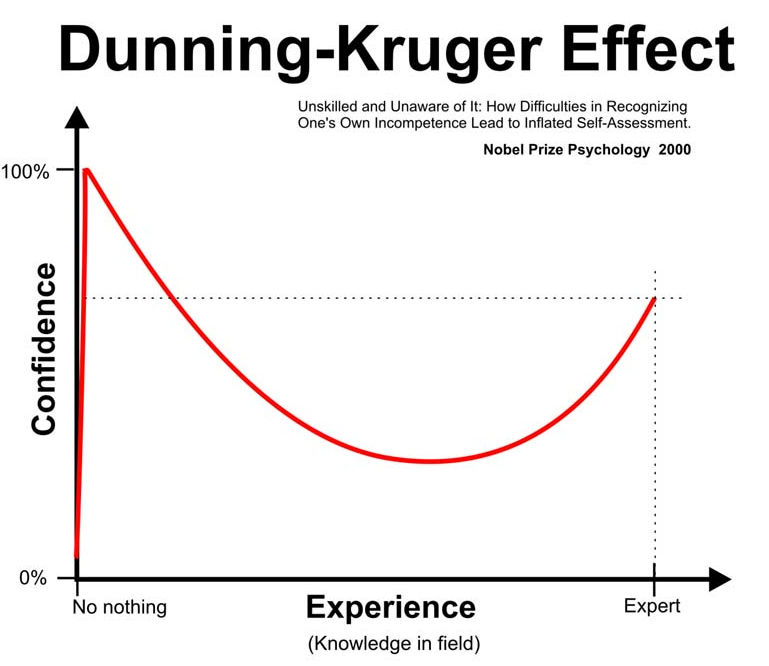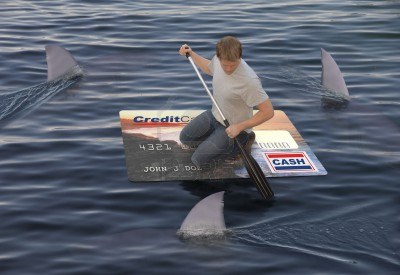
It allows to keep PV going, with more focus towards AI, but keeping be one of the few truly independent places.
-
Interesting and very sobering thread.
I ultimately think it's just really hard to make something that people are willing to pay to watch. People's time has value, so not only are you expecting them to devote 2 hours of their time to your art, but you are also expecting them to give you money for it. In order for your film to be worth it for an audience, it has to give them some kind of value. Whether it's laughs, stars, nudity, education, nostalgia, political confirmation, a sense of elitism, or whatever, the audience has to be able to get something out of it.
Assuming you have something that people will pay to watch, you are also competing with multi-million dollar movies, many of which people will watch whether it's good or bad anyways because of a huge marketing budget and Hollywood stars. It's very easy to get disillusioned when making your film because you put so much effort and energy behind it. You can spend 10 years on a film and refinance your home to raise the money, but it only takes the audience a couple of hours and 9 bucks to say it was a waste of time.
I think it's great to make a film for yourself and worry about just having fun, but it gets harder as the budget and crew gets bigger. It's one thing to make a $1,500 zombie film with your friends playing lead roles, but when your movie has $100,000 on the line, there's going to be a lot more at stake. You can spend $100,000 making a poorly built table, but at least you can put your stuff on it. A bad $100,000 film doesn't do anything but waste people's time and hard disk space.
-
“If you want to go fast, go alone. If you want to go far, go together.” - African proverb
-
Debating gets in the way. Just do it - nothing else matters
-
11 years! And here I was thinkin' you're just another punk :p
@ Vitaliy, there's something wrong with that picture: it's smooth!
Like the dude in the link I provided says, the cream always rises to the top, and that's not gonna change.
Perfection is bullshit, how do you even gauge it? Sure attention to detail is really important but this new breed of techno filmmakers are too caught up with pixels instead of focussing on far more important things like narrative and performance.
-
What people fail to realize is that I worked in obscurity on films that never found distribution as a DP for 6 years before I swallowed my pride and started doing shorts and got my first imdb credit, and I spent another 5 years before that as a photographer. So 11 years spent on my craft before I even "showed up on the radar" [even though I got my first 2nd Unit Directing credit in 2002.]
And that used to be the norm. You had to prove yourself on crappy equipment before anyone would let you anywhere near an Arriflex 435. They had to know you, know your work, and know your character before "letting you in the door"
So with the democratization of filmmaking gear, anyone can have access to quality gear. Which is awesome, but it has flooded the "market" per se, with inferior, unseasoned, "auteurs" who would have never lasted a month slumming it in the trenches as a grip, much less actually ever been afforded the opportunity to DP a film. Which is both a good and bad thing.
Because conversely, you don't really have to worry about "gatekeepers" preventing you from making the film you want to make. But just because one can do a thing, doesn't necessarily mean one MUST do a thing.
The ugly truth is that the market is now oversaturated, and I guess we just have to take the good with the bad. The good being that you don't need a Brinks truck to make a film. The bad is: You don't need a Brinks truck to make a film. The ugly is: it's only gonna get worse/better as technology improves.
On a side note - even on non-union shoots when Keys try to tell me I can't touch a cable, or stand, or adjust a light - I broil internally. I don't have time to wait for you to find your gloves and make the adjustment. I can do it in half the time it'll take you to get someone who's job it is to do so. I support the unions, but their purpose is to serve their members by protecting them from expoliotation, not get in the way of the process.
-
Thanks for bringing it back to original post idea. As I am just sick of people with "original" idea how to do more and how to earn less. And I extremely rarely saw someone who can make many things really good (but many state that they can).
I already provided this picture, but one more time won't hurt:

-
With all due respect, I'm not sure some of the people posting have ever worked on the set of a hollywood feature, network TV series, or national commercial. While I don't think unions are perfect, I also don't think many "indies" have great business models either. I love the art and collaboration of filmmaking and it was my love of movies that got me into this, but I've learned over the years that in order to sustain that love and passion for doing this, I need to earn money to put food on the table, pay a mortgage, invest in tools used in filmmaking, etc. I've been fortunate to have the opportunity to earn money in the industry to do all that. But, I have noticed over the past few years a trend that has been called by many "The Race to the Bottom". Everyone wants free (or close to free) gear and they work for little, sometimes no money at all (which isn't always a negative thing). That is not sustainable in my opinion. I am not a supporter of price gouging, or unions being completely unreasonable or out of touch. However, I am into common decency. People who are good at what they do deserve to make a good wage. They can be equally passionate about what they do and still earn money doing it. Those things don't have to be exclusive.
Now, when people first start out, it makes a lot of sense to find others who are also starting out and everyone puts blood, sweat, and tears into the work in lieu of money for the purpose of learning and getting better. Eventually as you build a portfolio of work, you then start to get better opportunities, and that can lead to making a career of it, one in which you get paid an amount of money that is fair for what you bring to the table.
In addition to the people side of this equation, I also wonder about the sustainability of the companies that provide the tools necessary for all of us creative people to use. I came up in the business starting in the mid 90's, when NLEs were still in their infancy and prohibitively expensive for someone just starting to purchase. I believe an Avid offline system was $40,000. Now, a fully capable Media Composer system has just dropped in price to $999 due to a change in the market that was brought on by a company (Apple) who's bread and butter isn't really professional editing. But Avid has to adjust or they will find it difficult to stay competitive. So, is this good or is this bad? I can certainly say it's good for the enduser. I much rather pay $999 than $2600. Is it good for a company like Avid? Probably not, although time will tell. They have had other issues in their past that have contributed to where they are now. But they are not the only example. Other companies throughout the industry have had to adjust to new business models and pricing structures. Again, time will tell if these companies survive. One thing has been clear to me. Younger generations that have been brought up on free internet, open source software, and torrents have at times displayed an attitude of entitlement on some of the forums I read. Many of these people have never run a business of their own or know what it takes to run one and survive in this economy or any economy.
So, while I will always be supportive of young up and coming filmmakers, I do advise some discretion on dismissing those who earn decent wages in this industry. Although there are talented people who can fill many roles on a production (director, writer, editor, VFX) such as Robert Rodriguez there is still a need for specialists. Someone cited a person wrangling cables making $2000/day (not true but I know it was an intentional exaggeration) as not needed but I can tell you that on a major show or movie these people are critical because time is money and not everyone is great at wrangling cables, in fact many are bad at it, especially under pressure. So, while you may think it's unnecessary while shooting your own film, under certain circumstances it is actually well worth the money paid. I just worked on a national tv spot where the VTR person didn't have a digital utility and based on the pace of shooting and poor weather conditions it became a real challenge for him to keep up and he's really good at what he does.
-
From the mouth of a distributor- http://www.reddit.com/r/Filmmakers/comments/1c7kx4/iama_film_distribution_professional_sales/
-
Guys, this topic is starting to get funny, not due to the pictures, photos or metaphors, but due to everybody to much worried about the subject...
Just relax and do your films... filmmaking is much more a fun activity instead of a thing to worry about. If you are good you will be acknowledged, so simple. But to be recognized is not the main thing, main thing is to get satisfaction from accomplish a film, get it done, overcome difficulties and get pleasure in doing, no matter who will like it or not.
Of course make money is important for a living, but making films cannot be the main indie activity for a living, unless you are a super pro mainstream director or producer... Lots of actors, directors, producers, writers have a job and do films as a second task. Or maybe you can get enough sponsors in your way if you search for, or maybe vimeo on demand will make money for you if you are really good. After the first films, when you perceive you are really good you can show your job to get into the industry. If you are "so-so", keep doing, no matter what...
In Super8 movie from Abrams/Spielberg there is a short super 8 movie in the end which shows exactly the philosophy of their generation, to do a film just for fun. (The Super8 movie itself is nothing more than an improvement of the short super8 showed in the end, looks like exactly what that guys used to do when they was teenagers). This is the way that directors got into the industry, because their ideas was really good. I believe they was not worried, they just started doing... Of course lots of people did what they did, but life is like this, many people try, some people succeed.
Do not stop if you do not succeed, do not think you are too old, your camera is your toy, what matters is your satisfaction in keep doing. Consider your GH2, BMPCC and other cameras as a better super 8 camera of these days... stop worry and do something.
-
Can sink that thing with one torpedo.
-
I was surprised to see a 5 minute review of Shane Carruth's Upstream Color on the CBC National news network. It's not even film festival season. Not bad coverage for a one man band with two hacked GH2's!
http://www.cbc.ca/news/arts/the-buzz/2013/04/film-review-upstream-color.html
BTW this is Hollywood, not the cruise ship!

 nimitz9.jpg500 x 420 - 45K
nimitz9.jpg500 x 420 - 45K -
Interesting stuff. I tend to believe certain things will become financially feasible outside the system, but I'm not sure about an out and out blockbuster if for no other reason than we don't have the marketing budget. Even social media requires money to go that big, except in miracle cases. I'm thinking $25,000-$200,000 budgets, $100,000-$1,000,000 returns, one every eight months, something like that.
As I try and do more, I'm finding that one of the keys to filmmaking is actually adding people, opening up, and collaborating, something that has been a bit difficult to do for a deeply one man oriented band. People, and locations and production expenses...Makes you think twice about the next piece of gear when in order to get two dugout canoes all the way down the river and back for filming, food, supplies, help, you're looking at close to a grand...oops, there goes the GH3 this month.
Obviously I think Hollywood sets are bloated, but the way Burns goes with a three man crew might be a template, whether or not that is the actual number. I don't really think the above stated director, dp and editor in one is a good way to go, and it's silly to think cinematography can be learned in 6 months. While I might do all three of those on a corporate film, in all but the rarest of cases a separate editor at least is a good idea, I think.
I want it to be painting or photography too, but it isn't it's bigger than that. We may not need Hollywood, or millions anymore just for the tech, but we do need some people.
-
I feel that this topic may have wandered slightly so perhaps a change of topic is required.
Since George Lucas has been referenced perhaps it could be...
"Modern Filmmakers : A New Hope" ??
-
I'm not really good at taking orders, but I can manage the rest.
I was in the music business before the D90 convinced me it was time to get into the film business, I didn't get into it for the money but there was money to be made if you were smart, talented, and on top of the technology.
We have a great opportunity here where we can say fuck you to the suits, crowdfund our features, do festivals, and distribute online if the distributors try to fuck us. If we make some money out of the first film we can start to collaborate with people we already collaborate with in cyberspace. We're gonna create an indiestry.
-
You want money, go trawl the pavements of Wall Street. My cousin is the same age as me, but is already a retired banker who owns no less than five houses. Many times, i have asked myself what am I doing in this trade? Is it the satisfaction of masturbating to my own ideas, or the pleasure of stroking my clients' ego? Neither has made me as rich as my cousin.
-
@bwhitz - well said.
-
And again, I am just tired of all this "let's cut people on set, cut salary of remaining ones and it'll be new approach to filming". Fucking shit. It is not new approach to filming.
But what is the alternative? Put more people on set and pay them more? Then what... pass the cost on to the consumer? Without the consumer (the audience) there is no reason for anyone to work in the first place.
What if films really do only require 1/5 of the people now? If the future of film requires less, but more specialized, people to create cost effective and compelling products, then it has to be done. If the price of production stays to high because people want to get paid $2000 a day to move cables around, then it's just not going to be sustainable for much longer. Too many options these day for other entertainment. Nobody is going to want to pay $45 dollars for a single ticket. If the current workers want to keep unnecessary jobs around, at the expense of raising the cost for everyone... is that not just as greedy as the executives on the other end?
I've been on sets where someone was fired for not call a fucking clothes pin a C47. I've seen gaffers refuse to plug in a cable and then tell the Director or DP they can't touch it or the production will be fined. Is this what people really want? How is this a sustainable model for the future?
I'm not saying I'm right. It's just my take on it all. If anyone else has a better model/improvement, it would bee interesting to hear it. Throw all the ideas on the table.
I know quite a few. It's the opposite that's foreign to me.
Same here. I work with great musicians all the time... who are also great actors... and great writers. Indie Composers are now dialog and recording artists. DPs are now cinematographers, colorists, and DIT. And most all aspiring Directors I know all shoot and edit their own material. They just have to. If they want their work to be competitive and to get hired, they have learn as much as they can themselves. And once they learn, and can do the jobs without thinking about them anymore, there is no reason to ever hire anybody else to fill the roles. Creative people are just creative. It can be applied to everything... you just need to pick the technical area(s) you want to apply it to. And it's getting easier all the time to do this as technology brings down the barriers that kept people from only physically being able to learn 1 or 2 skills in a lifetime.
A human being should be able to change a diaper, plan an invasion, butcher a hog, conn a ship, design a building, write a sonnet, balance accounts, build a wall, set a bone, comfort the dying, take orders, give orders, cooperate, act alone, solve equations, analyze a new problem, pitch manure, program a computer, cook a tasty meal, fight efficiently, die gallantly. Specialization is for insects. -Robert A. Heinlein
-
It is just weird. How much people you know who are very good at many jobs?
I know quite a few. It's the opposite that's foreign to me. The single-purpose cog is the easiest to replace. The creative, smart people I'm used to dealing with can't be confined to creating like they're a blue collar worker on a Detroit assembly line, turning the same wrench day in and day out, all day, everyday.
Don't mistake trade union job security for an accurate reflection of the limitations of human ability.
-
Did you see the cruise ship that broke down recently with human excrement running through the corridors? That's Hollywood, churn and burn.
-
Indie Filmmaker (top) vs Hollywood Movie (bottom)



 7039715-man-stranded-on-a-raft-made-of-a-huge-credit-card-in-the-ocean-while-being-circled-by-sharks.jpg400 x 275 - 27K
7039715-man-stranded-on-a-raft-made-of-a-huge-credit-card-in-the-ocean-while-being-circled-by-sharks.jpg400 x 275 - 27K
 carnival_magic_cruise_ship.jpg500 x 239 - 26K
carnival_magic_cruise_ship.jpg500 x 239 - 26K -
Why wouldn't I be proud of it? I created it and it's not terrible. It's only a rough cut and not even graded yet but I wanted to demonstrate that it can be done. You can ride the tsunami or get washed away.
-
@squig I suppose you're proud of that, or you wouldn't have linked it otherwise? This tsunami of yours - full of blind spots it is.
-
I shot my first short with a crew of two.
I shot this without a crew, it was just me and the actor- https://docs.google.com/file/d/0BzJ3L6nv6Fn0ZGd5dG9mTDFSaXc/edit
I'm shooting my first feature with a crew of no more than four, it can be done because the technology makes it possible and I know a bunch of "techno brats" who are doing it. There's a tsunami coming.
-
The idea of "one person, one job" is ancient. It really complicates the process as well. It use to only be necessary because it took so long to learn each individual job.
It is just weird. How much people you know who are very good at many jobs?
And again, I am just tired of all this "let's cut people on set, cut salary of remaining ones and it'll be new approach to filming". Fucking shit. It is not new approach to filming.
Howdy, Stranger!
It looks like you're new here. If you want to get involved, click one of these buttons!
Categories
- Topics List23,993
- Blog5,725
- General and News1,354
- Hacks and Patches1,153
- ↳ Top Settings33
- ↳ Beginners256
- ↳ Archives402
- ↳ Hacks News and Development56
- Cameras2,368
- ↳ Panasonic995
- ↳ Canon118
- ↳ Sony156
- ↳ Nikon96
- ↳ Pentax and Samsung70
- ↳ Olympus and Fujifilm102
- ↳ Compacts and Camcorders300
- ↳ Smartphones for video97
- ↳ Pro Video Cameras191
- ↳ BlackMagic and other raw cameras116
- Skill1,960
- ↳ Business and distribution66
- ↳ Preparation, scripts and legal38
- ↳ Art149
- ↳ Import, Convert, Exporting291
- ↳ Editors191
- ↳ Effects and stunts115
- ↳ Color grading197
- ↳ Sound and Music280
- ↳ Lighting96
- ↳ Software and storage tips266
- Gear5,420
- ↳ Filters, Adapters, Matte boxes344
- ↳ Lenses1,582
- ↳ Follow focus and gears93
- ↳ Sound499
- ↳ Lighting gear314
- ↳ Camera movement230
- ↳ Gimbals and copters302
- ↳ Rigs and related stuff273
- ↳ Power solutions83
- ↳ Monitors and viewfinders340
- ↳ Tripods and fluid heads139
- ↳ Storage286
- ↳ Computers and studio gear560
- ↳ VR and 3D248
- Showcase1,859
- Marketplace2,834
- Offtopic1,320
Tags in Topic
- fun 60















